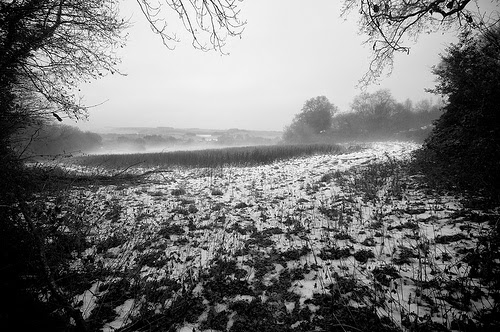1) HERE AND NOW, ALWAYS
Traherne (cfr. ‘La filosofia perenne’ di Aldous Huxley):
The corn was orient and immortal wheat, which never should be reaped, nor was ever sown. I thought it had stood from everlasting to everlasting. The dust and stones of the street were as precious as gold: the gates were at first the end of the world. The green trees when I saw them first through one of the gates transported and ravished me, their sweetness and unusual beauty made my heart to leap, and almost mad with ecstasy, they were such strange and wonderful things: The Men! O what venerable and reverend creatures did the aged seem! Immortal Cherubims! And young men glittering and sparkling Angels, and maids strange seraphic pieces of life and beauty! Boys and girls tumbling in the street, and playing, were moving jewels. I knew not that they were born or should die; But all things abided eternally as they were in their proper places. Eternity was manifest in the Light of the Day, and something infinite behind everything appeared which talked with my expectation and moved my desire. The city seemed to stand in Eden, or to be built in Heaven. The streets were mine, the temple was mine, the people were mine, their clothes and gold and silver were mine, as much as their sparkling eyes, fair skins and ruddy faces. The skies were mine, and so were the sun and moon and stars, and all the World was mine; and I the only spectator and enjoyer of it. I knew no churlish proprieties, nor bounds, nor divisions: but all proprieties* and divisions were mine: all treasures and the possessors of them.
(So that with much ado I was corrupted, and made to learn the dirty devices of this world. Which now I unlearn, and become, as it were, a little child again that I may enter into the Kingdom of God.)
Troppa luce acceca (Pascal): cfr. Jung (p.e. ‘Frate Klaus’), ‘Kundalini’ di Gopi Krishna
Laing (‘La politica dell’esperienza’)
Wilber: lo spettro della coscienza come itinerarium mentis ad deum (cfr. le esperienze picco di Maslow)
ma è così semplice?
è un meccanismo on/off?
(cfr. Tart: state-specific consciousness, e state-specific sciences)
e poi: il mondo delle visioni è diverso da quello degli incubi?
(‘quando si spengono le luci si accende la luce del Sé’)
Kali (Tantra) cfr. Zimmer (la Grande Dea creatrice e distruttrice)
Anche il messaggio di Krishna ad Arjuna viene dato nel mezzo di una battaglia
:
COMBATTI
ma, sicuramente, c’è guerra e guerra
(‘We knew the world would not be the same. A few people laughed, a few people cried, most people were silent. I remembered the line from the Hindu scripture, the Bhagavad-Gita. Vishnu is trying to persuade the Prince that he should do his duty and to impress him takes on his multi-armed form and says, "Now I am become Death, the destroyer of worlds." I suppose we all thought that, one way or another’- Oppenheimer, il creatore della bomba atomica, ricordando gli istanti dopo la prima esplosione ad Alamogordo)
THE PYLONS OF THE HOUSE OF OSIRIS
The following shall be said when one cometh to the FIRST PYLON. The Osiris the scribe Ani, whose word is truth, saith: “Lady of tremblings, high-walled, the sovereign lady, the lady of destruction, who uttereth the words which drive back the destroyers, who delivereth from destruction him that cometh.” The name of her Doorkeeper is Neruit.
The following shall be said when one cometh to the SECOND PYLON. The Osiris the scribe Ani, whose word is truth, saith: “Lady of heaven, Mistress of the Two Lands, devourer by fire, Lady of mortals, who art infinitely greater than any human being.” The name of her Doorkeeper is Mes-Ptah.
The following shall be said when one cometh to the THIRD PYLON. The Osiris the scribe Ani, whose word is truth, saith: “Lady of the Altar, the mighty lady to whom offerings are made, greatly beloved one of every god sailing up the river to Abydos.” The name of her Doorkeeper is Sebqa.
The following shall be said when one cometh to the FOURTH PYLON. The Osiris the scribe Ani, whose word is truth, saith: “Prevailer with knives, Mistress of the Two Lands, destroyer of the enemies of the Still-Heart (Osiris), who decreeth the release of those who suffer through evil hap.” The name of her Doorkeeper is Nekau.
The following shall be said when one cometh to the FIFTH PYLON. The Osiris the scribe Ani, whose word is truth, saith: “Flame, Lady of fire, absorbing the entreaties which are made to her, who permitteth not to approach her the rebel.” The name of her Doorkeeper is Henti-Reqiu.
The following shall be said when one cometh to the SIXTH PYLON. The Osiris the scribe Ani, whose word is truth, saith: “Lady of light, who roareth mightily, whose breadth cannot be comprehended. Her like hath not been found since the beginning. There are serpents over which are unknown. They were brought forth before the Still-Heart.” The name of her Doorkeeper is Semati.
The following shall be said when one cometh to the SEVENTH PYLON. The Osiris the scribe Ani, whose word is truth, saith: “Garment which envelopeth the helpless one, which weepeth for and loveth that which it covereth.” The name of her Doorkeeper is Saktif.
The following shall be said when one cometh to the EIGHTH PYLON. The Osiris the scribe Ani, whose word is truth, saith: “Blazing fire, unquenchable, with far-reaching tongues of flame, irresistible slaughterer, which one may not pass through fear of its deadly attack.” The name of her Doorkeeper is Khutchetef.
The following shall be said when one cometh to the NINTH PYLON.
The Osiris the scribe Ani, whose word is truth, saith:
“Chieftainess, lady of strength, who giveth quiet of heart to the offspring of her lord. Her girth is three hundred and fifty khet, and she is clothed with green feldspar of the South. She bindeth up the divine form and clotheth the helpless one. Devourer, lady of all men.” The name of her Doorkeeper is Arisutchesef.
The following shall be said when one cometh to the TENTH PYLON. The Osiris the scribe Ani, whose word is truth, saith: “Goddess of the loud voice, who maketh her suppliants to mourn, the awful one who terrifieth, who herself remaineth unterrified within.” The name of her Doorkeeper is Sekhenur.
Nu, the steward of the keeper of the seal, saith when he cometh to the ELEVENTH PYLON of Osiris: “I have made my way, I know you, and I know thy name, and I know the name of her who is within thee: She who slayeth always, consumer of the fiends by fire, mistress of every pylon, the lady who is acclaimed on the day of darkness” is thy name. She inspecteth the swathing of the helpless one.
The Osiris Nu, the steward of the keeper of the seal, saith when he cometh to the TWELFTH PYLON of Osiris: “I have made my way, I know you, and I know thy name, and I know the name of her who is within thee: Invoker of thy Two Lands, destroyer of those who come to thee by fire, lady of spirits, obeyer of the word of thy Lord” is thy name. She inspecteth the swathing of the helpless one.
The Osiris Nu, the steward of the keeper of the seal, saith when he cometh to the THIRTEENTH PYLON of Osiris: “I have made my way, I know you and I know thy name, and I know the name of her who is within thee: Osiris foldeth his arms about her, and maketh Hapi (the Nile-god), to emit splendour out of his hidden places” is thy name. She inspecteth the swathing of the helpless one.
The Osiris Nu, the steward of the keeper of the seal, saith when he cometh to the FOURTEENTH PYLON of Osiris: “I have made my way, I know thee, and I know thy name, and I know the name of her who is within thee. Lady of might, who trampleth on the Red Demons, who keepeth the festival of Haaker on the day of the hearing of faults” is thy name. She inspecteth the swathing of the helpless one.
THE FIFTEENTH PYLON. The Osiris Heru-em-khebit, whose word is truth, shall say when he cometh to this pylon: “Fiend, red of hair and eyes, who appeareth by night, and doth fetter the fiend in his lair. Let her hands be given to the Still-Heart in his hour, let her advance and go forward” is thy name. She inspecteth the swathing of the helpless one.
THE SIXTEENTH PYLON. The Osiris Heru-em-khebit, whose word is truth, shall say when he cometh to this pylon: “Terrible one, lady of the rain-storm, destroyer of the souls of men, devourer of the bodies of men, orderer, producer, and maker of slaughter” is thy name. She inspecteth the swathing of the helpless one.
THE SEVENTEENTH PYLON. The Osiris Heru-em-khebit, whose word is truth, shall say when he cometh to this pylon: “Hewer-in-pieces in blood, Ahibit, lady of hair” is thy name. She inspecteth the swathing of the helpless one.
THE EIGHTEENTH PYLON. The Osiris Heru-em-khebit, whose word is truth, shall say when he cometh to this pylon: “Fire-lover, pure one, lover of slaughterings, cutter off of heads, devoted one, lady of the Great House, slaughterer of fiends at eventide” is thy name. She inspecteth the swathing of the helpless one.
THE NINETEENTH PYLON. The Osiris Heru-em-khebit, whose word is truth, shall say when he cometh to this pylon: “Light-giver for life, blazing all the day, lady of strength [and of] the writings of the god Thoth himself” is thy name. She inspecteth the swathings of the White House.
THE TWENTIETH PYLON. The Osiris Heru-em-khebit, whose word is truth, shall say when he cometh to this pylon: “Dweller in the cavern of her lord, her name is Clother, hider of her creations, conqueror of hearts, swallower [of them]” is thy name. She inspecteth the swathings of the White House.
THE TWENTY-FIRST PYLON. The Osiris Heru-em-khebit, whose word is truth, shall say when he cometh to this pylon: “Knife which cutteth when [its name] is uttered, slayer of those who approach thy flame” is thy name. She possesseth hidden plans.
‘Here and now’, qui ed ora: continuamente ripetuto dagli uccelli mynah in ‘Isola’ di Huxley (ed una delle parole d’ordine della terapia della gestalt)
e Nagarjuna: tutto ciò che è reale è irreale
tutto ciò che è irreale è reale
2) TRIPS
Cfr. Campbell- ‘L’eroe dai mille volti’
(il problema dei siddhi, i poteri magici)
una poesia di W.H.Auden (da ‘The Quest’, la ricerca)
XVI. The Hero
He parried every question that they hurled:
"What did the Emperor tell you?" "Not to push."
"What is the greatest wonder of the world?"
"The bare man Nothing in the Beggar's Bush."
Some muttered: "He is cagey for effect.
A hero owes a duty to his fame.
He looks too like a grocer for respect."
Soon they slipped back into his Christian name.
The only difference that could be seen
From those who'd never risked their lives at all
Was his delight in details and routine:
For he was always glad to mow the grass,
Pour liquids from large bottles into small,
Or look at clouds through bits of coloured glass.
come in una risposta dell’I King: ‘dolce delimitazione reca conforto’
( esagramma 60- il 9 nella quinta linea )
3) (o forse, più propriamente, zero)
l’equilibrio fra le parti di noi
fra noi ed il mondo
fra noi e gli altri
fra le diverse descrizioni del mondo
The Crystal Cabinet
The Maiden caught me in the Wild
Where I was dancing merrily
She put me into her Cabinet
And Lockd me up with a golden Key
This Cabinet is formd of Gold
And Pearl & Crystal shining bright
And within it opens into a World
And a little lovely Moony Night t
Another England there I saw
Another London with its Tower
Another Thames & other Hills
And another pleasant Surrey Bower
Another Maiden like herself
Translucent lovely shining clear
Threefold each in the other closd
O what a pleasant trembling fear
O what a smile a threefold Smile
Filld me that like a flame I burnd
I bent to Kiss the lovely Maid
And found a Threefold Kiss returnd
I strove to sieze the inmost Form
With ardor fierce & hands of flame
But burst the Crystal Cabinet
And like a Weeping Babe became
A weeping Babe upon the wild
And Weeping Woman pale reclind
And in the outward air again
I filld with woes the passing Wind
William Blake
At high noon the sun always coming out at last, strong, beating down on my nice high porch where I sit with books and coffee and the noon I thought about the ancient Indians who must have inhabited this canyon for thousands of years, how even as far back as the l0th century this valley must have looked the same, just different trees: these ancient Indians simply the ancestors of the Indians of only recently say 1860... How they've all died and quietly buried their grievances and excitements How the creek may have been an inch deeper since logging operations of the last sixty years have removed some of the watershed in the hills back there... How the women pounded the local acorns, acorns or shmacorns, I finally found the natural nuts of the valley and they were sweet tasting -- And men hunted deer -- In fact God knows what they did because I wasn't here -- But the same valley, a thousand years of dust more or less over their footsteps of A. D. 960 -- And as far as I can see the world is too old for us to talk about it with our new words -- We will pass just as quietly through life (passing through, passing through) as the 10th century people of this valley only with a little more noise and a few bridges and dams and bombs that wont even last a million years -- The world being just what it is, moving and passing through, actually alright in the long view and nothing to complain about -- Even the rocksof the valley had earlier rock ancestors, a billion billion years ago, have left no howl of complaint -- Neither the bee, or the first sea urchins, or the clam, or the severed paw -- All said So-Is sight of the world, right there in front of my nose as I look, -- And looking at that valley in fact I also realize I have to make lunch and it wont be any different than the lunch of those olden men and besides it'll taste good -- Everything is the same, the fog says "We are fog and we fly by dissolving like ephemera, " and the leaves say "We are leaves and we jiggle in the wind, that's all, we come and go, grow and fall" -- Even the paper bags in my garbage pit say "We are man transformed paper bags made out of wood pulp, we are kinda proud of being paper bags as long as that will be possible, but we'll be mush again with our sisters the leaves come rainy season" -- The tree stumps say "We are tree stumps torn out of the ground by men, sometimes by wind, we have big tendrils full of earth that drink out of the earth'... Men say "We are men, we pull out tree stumps, we make paper bags, we think wise thoughts, we make lunch, we look around, we make a great effort to realize everything is the same" -- While the sand says "We are sand, we already know, " and the sea says "We are always come and go, fall and plosh. " -- The empty blue sky of space says "All this comes back to me, then goes again, and comes back again, then goes again, and I don't care, it still belongs to me" -- The blue sky adds "Dont call me eternity, call me God if you like, all of you talkers are in paradise: the leaf is paradise, the tree stump is paradise, the paper bag is paradise, the man is paradise, the fog is paradise" -- Can you imagine a man with mar-velous insights like these can go mad within a month? (because you must admit all those talking paper bags and sands were telling the truth) -- But I remember seeing a mess of leaves suddenly go skittering in the wind and into the creek, then floating rapidly down the creek toward the sea, making me feel a nameless horror even then of "Oh my God, we're all being swept away to sea no matter what we know or say or do" -- And a bird who was on a crooked branch is suddenly gone without my even hearing him.
HERE AND NOW, ALWAYS







